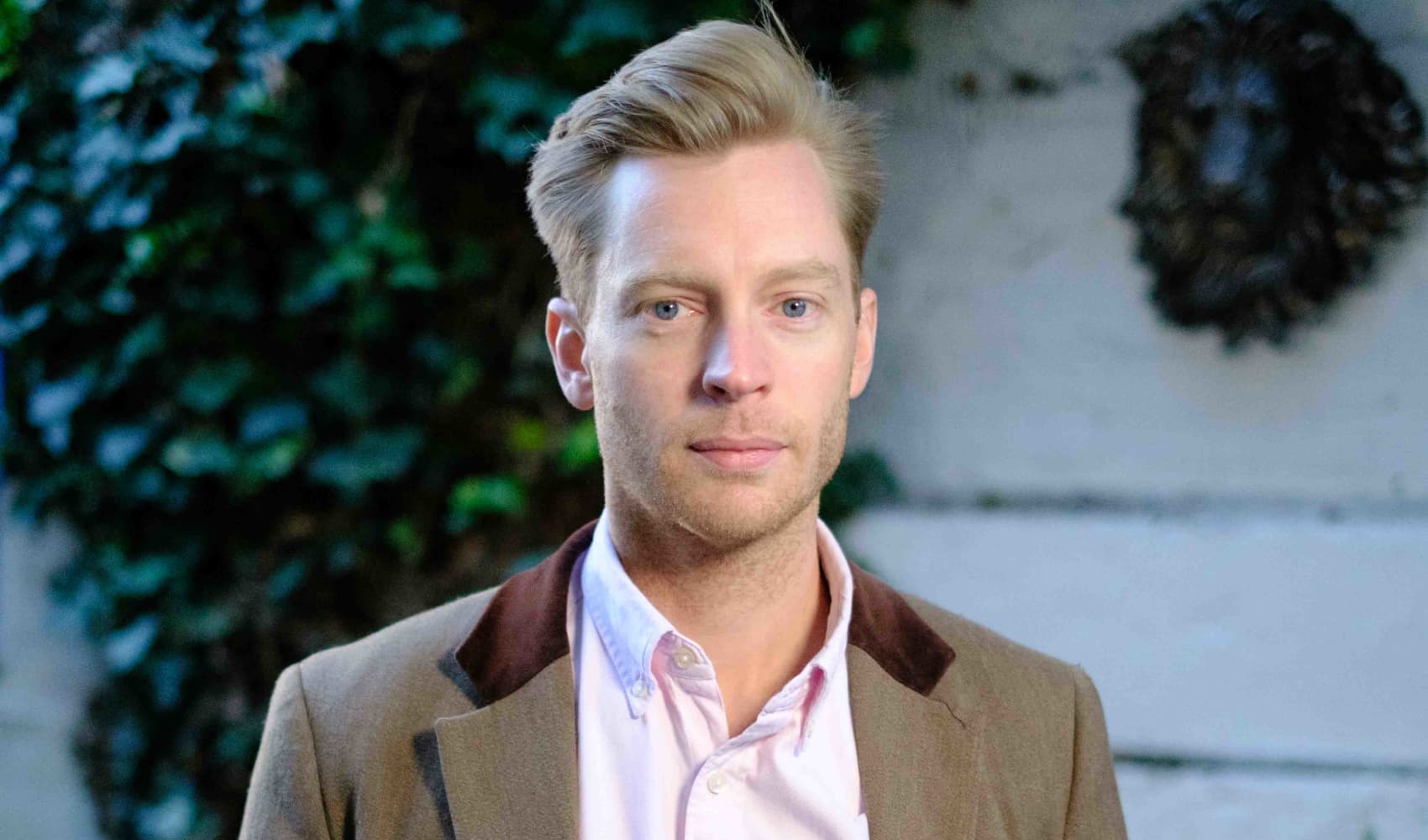Dark Side of Success: Psychiatrist Reveals Hidden Struggles
Success's Shadow: The Dark Side of Achievement and How to Find Light
Introduction: Beyond the Shine, a Struggle Within
We often equate success with happiness. The corner office, the overflowing bank account, the accolades – they seem like the ultimate recipe for a fulfilling life. But what happens when, despite achieving all the external markers of success, an inner darkness persists? What if the very pursuit of achievement is, in fact, contributing to your unhappiness? This is the surprising, and often unspoken, truth behind the "dark side of success," and we're here to shed some light on it.
The Mask of High-Functioning Depression
Depression isn't a one-size-fits-all experience. You might imagine someone struggling to get out of bed, completely withdrawn from the world. But depression can wear many faces, and one of the most deceptive is what's often referred to as "high-functioning depression."
What is High-Functioning Depression?
Although it’s not an official clinical diagnosis, "high-functioning depression" describes individuals who are battling mental health challenges while maintaining a seemingly normal, even successful, life. According to the National Alliance on Mental Illness, it affects anyone who is managing daily tasks and responsibilities effectively, while grappling with mental health issues internally.
These are the people who show up to work, meet deadlines, and maintain relationships, all while silently struggling with deep sadness, exhaustion, and a profound lack of joy. They're masters of disguise, hiding their inner turmoil behind a façade of competence and accomplishment.
Recognizing the Symptoms: It's More Than Just Feeling Blue
How do you know if you or someone you know is experiencing the dark side of success and potentially struggling with high-functioning depression? The symptoms can be subtle and easily dismissed as simply being "stressed" or "overworked."
- Persistent sadness or emptiness: A feeling that hangs over you, despite outward appearances.
- Loss of interest or pleasure: Hobbies and activities that once brought joy now feel like a chore.
- Fatigue and low energy: Feeling constantly drained, even after adequate sleep.
- Changes in appetite or weight: Significant weight loss or gain when not dieting.
- Sleep disturbances: Insomnia (difficulty sleeping) or hypersomnia (sleeping too much).
- Feelings of worthlessness or guilt: Harsh self-criticism and dwelling on past mistakes.
- Difficulty concentrating: Trouble focusing on tasks or making decisions.
- Restlessness or slowed movements: Feeling agitated and unable to sit still, or feeling physically sluggish.
- Thoughts of death or suicide: Recurring thoughts about death or suicide (seek immediate help if these thoughts are present).
Dr. Judith Joseph's Insight: The Over-Functioning Phenomenon
Dr. Judith Joseph, a board-certified psychiatrist and author of "High Functioning," offers valuable insight into this phenomenon. "People with high-functioning depression, they're overly functioning," she explains. "When they sit still, they feel empty. When they're not busy, they feel restless." This constant need to be productive becomes a way to avoid confronting their underlying emotions.
The Root Causes: Why Success Can't Always Heal
What drives this dark side of success? It's often a complex interplay of factors, including:
Trauma and Early Experiences
Dr. Joseph notes that experiencing trauma, such as financial hardship or a difficult childhood, can contribute to this pattern. These experiences can create a deep-seated need for control and achievement as a way to compensate for past feelings of helplessness or inadequacy. **Success becomes a shield, protecting them from vulnerability.**
Perfectionism and the Pressure to Achieve
The constant pressure to achieve and maintain a perfect image can be incredibly taxing. Perfectionists often set unrealistic standards for themselves, leading to chronic stress, anxiety, and a fear of failure. This relentless pursuit of perfection can leave little room for genuine joy and self-compassion.
Societal Expectations and the Comparison Game
We live in a society that often equates worth with productivity and achievement. Social media amplifies this pressure, constantly bombarding us with images of seemingly perfect lives. It's easy to fall into the trap of comparing ourselves to others, leading to feelings of inadequacy and a sense of never being "good enough."
5 Tools to Find Your Light: Reclaiming Joy and Well-being
The good news is that you don't have to be trapped in the dark side of success. Here are five powerful tools to help you reclaim your joy and well-being:
1. Cultivate Self-Compassion: Treat Yourself with Kindness
The first step is to break free from the cycle of self-criticism and learn to treat yourself with the same kindness and understanding you would offer a friend. Practice self-compassion exercises, such as writing a letter to yourself from the perspective of a loving friend, or simply taking a moment to acknowledge your struggles and offer yourself comfort.
2. Prioritize Rest and Recovery: Schedule Downtime
In our achievement-driven culture, rest is often seen as a luxury, not a necessity. But downtime is essential for recharging your batteries and preventing burnout. Schedule regular breaks throughout the day, and prioritize activities that help you relax and de-stress, such as taking a walk in nature, reading a book, or listening to music.
3. Practice Mindfulness: Stay Present
Mindfulness involves paying attention to the present moment without judgment. This can help you break free from rumination on the past and worries about the future. Try incorporating mindfulness practices into your daily routine, such as mindful breathing, meditation, or simply paying attention to your senses while engaging in everyday activities.
4. Connect with Others: Build Meaningful Relationships
Strong social connections are vital for mental and emotional well-being. Make time for meaningful interactions with friends and family, and cultivate relationships based on authenticity and vulnerability. Sharing your struggles with trusted loved ones can provide support, reduce feelings of isolation, and help you gain perspective.
5. Seek Professional Help: Don't Be Afraid to Ask for Support
There is no shame in seeking professional help. A therapist or psychiatrist can provide guidance, support, and evidence-based treatments, such as cognitive behavioral therapy (CBT) or medication, to help you manage your symptoms and develop coping strategies. **Remember, seeking help is a sign of strength, not weakness.**
Beyond the To-Do List: Finding Purpose and Meaning
True success isn't just about achieving goals; it's about living a life that is aligned with your values and brings you genuine joy and fulfillment. Take time to reflect on what truly matters to you, and identify activities and relationships that give your life meaning and purpose. Maybe it's volunteering, pursuing a creative hobby, or simply spending more time with loved ones.
The Power of Vulnerability: Breaking Down the Facade
One of the biggest barriers to overcoming the dark side of success is the fear of vulnerability. We often believe that we need to project an image of strength and competence, but this can be incredibly isolating. Allowing yourself to be vulnerable, to share your struggles and imperfections, can be incredibly liberating and can foster deeper connections with others.
Learning to Say "No": Setting Boundaries and Prioritizing Well-being
High-achievers often struggle with saying "no," taking on too many responsibilities and burning themselves out. Learning to set healthy boundaries is essential for protecting your time, energy, and well-being. Don't be afraid to decline requests that don't align with your priorities, and prioritize activities that nourish your soul.
Reframing Success: Defining It on Your Own Terms
Society often dictates what success should look like, but it's important to define it on your own terms. What truly matters to you? Is it wealth, status, or something else entirely? Reframing your definition of success can help you break free from the pressure to conform to external expectations and focus on what truly brings you happiness.
Conclusion: Embracing Imperfection and Finding Joy in the Journey
The dark side of success is a real and often unspoken struggle. But by recognizing the symptoms, understanding the root causes, and implementing these five tools, you can break free from the cycle of achievement-driven unhappiness and reclaim your joy and well-being. Remember, true success isn't just about reaching the top; it's about enjoying the journey along the way and embracing the beauty of imperfection. So, take a deep breath, be kind to yourself, and start creating a life that is both successful and fulfilling.
Frequently Asked Questions (FAQs)
Q1: Is high-functioning depression a real diagnosis?
No, "high-functioning depression" is not a formal clinical diagnosis in the DSM-5. However, it's a widely used term to describe individuals who experience depressive symptoms while maintaining a high level of performance in their daily lives. These individuals often meet the criteria for other depressive disorders, such as persistent depressive disorder (dysthymia) or major depressive disorder, but their symptoms may be less obvious to others.
Q2: Can success actually cause depression?
Success itself doesn't directly cause depression, but the pressure to maintain that success, along with underlying factors like perfectionism, trauma, or societal expectations, can contribute to the development or exacerbation of depressive symptoms. The constant striving for achievement can also lead to burnout, which can further impact mental health.
Q3: How can I support someone who is experiencing high-functioning depression?
Be supportive and understanding. Let them know that you're there for them and that they're not alone. Encourage them to seek professional help. Avoid minimizing their feelings or offering unsolicited advice. Simply listening and validating their experience can be incredibly helpful.
Q4: What are some effective treatments for high-functioning depression?
Treatment options include psychotherapy (such as cognitive behavioral therapy or interpersonal therapy), medication (such as antidepressants), and lifestyle changes (such as improving sleep, diet, and exercise habits). The best course of treatment will depend on the individual's specific symptoms and needs.
Q5: How can I prevent high-functioning depression from developing?
Prioritize self-care, practice self-compassion, build strong social connections, set healthy boundaries, and challenge perfectionistic tendencies. Regularly engage in activities that bring you joy and fulfillment, and don't be afraid to ask for help if you're feeling overwhelmed or struggling to cope.





